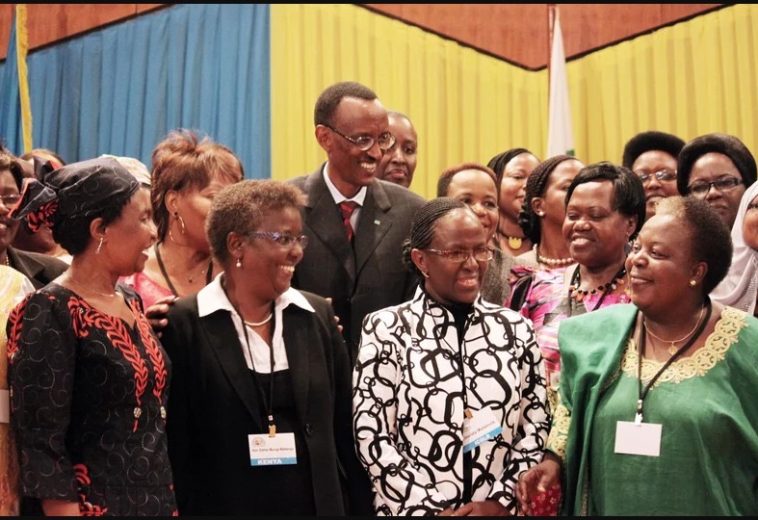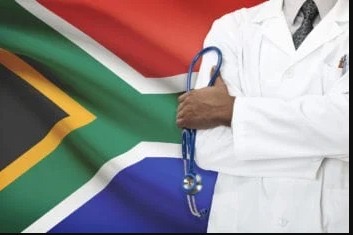MWelcome, esteemed readers, to a riveting exploration of the transformative leadership shaping the heart of Africa in the year 2024. In the crucible of challenges and opportunities, the Central African countries are witnessing an era where visionary leaders are remoulding destinies. This piece delves into the remarkable narratives of President Paul Kagame of Rwanda, President Félix Tshisekedi of the Democratic Republic of the Congo, President Denis Sassou Nguesso of the Republic of the Congo, and President Teodoro Obiang Nguema Mbasogo of Equatorial Guinea. In a region historically marred by conflict and instability, these leaders stand as beacons of progress, navigating their nations towards prosperity, transparency, and sustainable development.
Paul Kagame (Rwanda)
After the genocide that split Rwanda apart in 2000, Paul Kagame took office as president of that nation. He was forced to rely on a small number of inexperienced cadres and largely illiterate guerilla warriors to reconstruct it. Not even the most sanguine of experts was sanguine about his chances.
However, 19 years later, the nation is united, prosperous, stable, and, for the most part, at peace. Social services, including housing, healthcare, education, and livestock, are given to the poor without regard to their ethnicity or place of origin. These forms of discrimination were prevalent in the governments that preceded the genocide against the Tutsi, which was stopped by Kagame as the leader of the Rwandan Patriotic Front (RPF).
Kagame’s strategy has been innovative, strengthening ties with far-flung neighbours and insulating Rwanda from criticism from Western powers. His economic policies have led to remarkable growth, with Rwanda’s GDP increasing steadily over the years. The country has attracted foreign investments, especially in the technology and service sectors. Under Kagame’s leadership, Rwanda has achieved significant advancements in healthcare, including a reduction in maternal and child mortality rates.
The government’s commitment to universal healthcare has increased access to medical services. His administration has actively promoted gender equality, with women holding key positions in government. Rwanda boasts one of the highest percentages of female representation in parliament globally.
Beyond Africa, Kagame elicits mixed feelings, being labelled by human rights groups as an authoritarian leader stifling the press and political freedoms. Critics, however, mistakenly imply that these freedoms existed in Rwanda before Kagame, when, in fact, efforts to establish them were ongoing. Kagame’s governance is marked by toughness on corruption and divisive speech, regulating expressions to prevent ethnic prejudice. Democracy was adjusted to address Rwanda’s unique challenges, aiming for unity and reconciliation among a population with a shared purpose.
Félix Tshisekedi (Democratic Republic of Congo)
Tshisekedi’s commitment to fighting corruption is evident through his establishment of anti-corruption institutions and the dismissal of corrupt officials. These measures aim to create a more transparent and accountable government. President Tshisekedi has actively engaged in diplomatic efforts to foster peace in the Great Lakes region, contributing to stability and cooperation among neighbouring countries.
President Tshisekedi has managed the Congolese economy quite successfully during his first time in office. During the epidemic, the nation’s GDP growth rate decreased, but it has since somewhat recovered. It rose from 6.20% in 2021 to 8.92% in 2022, mostly due to the mining sector. The DRC became the eighth country to join the East African Community in 2022. With this action, Tshisekedi hoped to improve trade ties and ease tensions with the DRC’s neighbors. By entering, the DRC may increase its imports from its neighbours in East Africa and gain access to a market with 146 million people.
In July 2023, the DRC and the United Arab Emirates inked a mining agreement. The agreement, which is valued at US$1.9 billion, calls for the development of at least four mines in the northeast of the country. These agreements hold significance as the Democratic Republic of the Congo’s economy mostly grows due to mining.
Tshisekedi expedited the flow of Congolese exports by initiating the construction of a new route that would connect Zambia and Tanzania. The DRC is landlocked; the new road would shorten the distance between a port in Tanzania and some of the nation’s copper and cobalt deposits by around 240 kilometers. More than five million additional pupils were enrolled when he instituted free elementary education.
However, the initiative has come under fire for certain regions’ overcrowding of classrooms and the continued low pay of instructors. In addition, the president offered free medical care to expectant mothers giving birth in hospitals and health centres that were preselected in Kinshasa. If re-elected, he has pledged to expand this programme to the entire nation.
For the nation to retain a larger portion of its enormous mineral resources, he has pushed for an examination of its mining treaties with China. He said that the economy had improved in a State of the Nation speech, citing the national budget’s roughly three-fold increase from $6 billion (£4.7 billion) at the start of his administration to $16 billion in 2023.
With the much-awaited re-negotiation of a mining agreement between China and the Democratic People’s Republic of Congo, Tshisekedi’s administration hopes to boost revenue. There is pressure on the president to extract more value from the US$6.2 billion agreement. Tshisekedi has increased his ownership share in the Sino-Congolese company Sicominesfrom 32% to 70%.
Denis Sassou Nguesso (Republic of Congo)
Several political and economic changes were carried out by President Sassou-Nguesso to save the nation from financial ruin and fortify the democratic system. Nguesso has implemented policies to diversify the economy beyond oil, investing in sectors like agriculture and manufacturing. This reduced dependence on oil revenues and promoted a more sustainable and balanced economy. Significant investments in infrastructure projects, such as roads and energy, have enhanced connectivity within the country, encouraging trade and economic growth.
Teodoro Obiang Nguema Mbasogo (Equatorial Guinea)
Equatorial Guinea has experienced substantial economic growth under President Obiang’s leadership, driven primarily by the oil sector. The government has used oil revenues to invest in infrastructure, education, and healthcare. President Obiang has implemented social development programmes, including efforts to improve access to education and healthcare services for the population.
As we conclude this illuminating journey through the leadership landscapes of Central Africa in 2024, it is evident that the intricate fabric of each nation’s progress is woven by the hands of dynamic and forward-thinking leaders. From the resilient rebuilding of Rwanda under Paul Kagame to Félix Tshisekedi’s economic acumen transforming the Democratic Republic of Congo, from Denis Sassou Nguesso’s diversification strategies in the Republic of Congo to the oil-fueled growth in Equatorial Guinea under Teodoro Obiang Nguema Mbasogo—these leaders are architects of change.
While the path to progress may be fraught with challenges and criticisms, these leaders exhibit resilience, commitment, and a profound dedication to the well-being of their nations. In a region poised for a new chapter, these leaders are not merely shaping policies; they are crafting legacies that will resonate for generations to come. As the world watches, Central Africa unfolds, led by leaders who are not just remolding countries but reshaping the narrative of a continent striving for excellence and prosperity.


